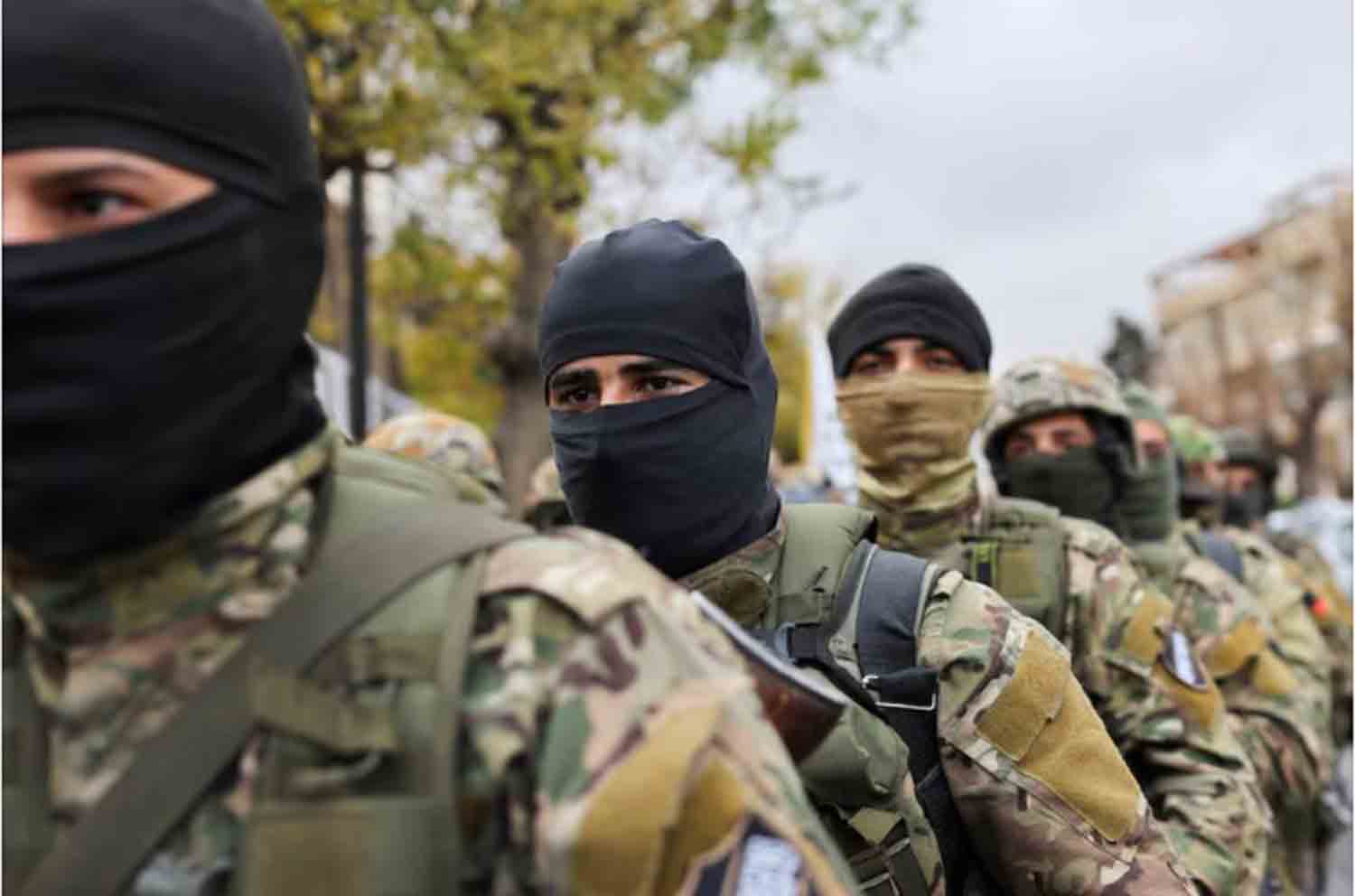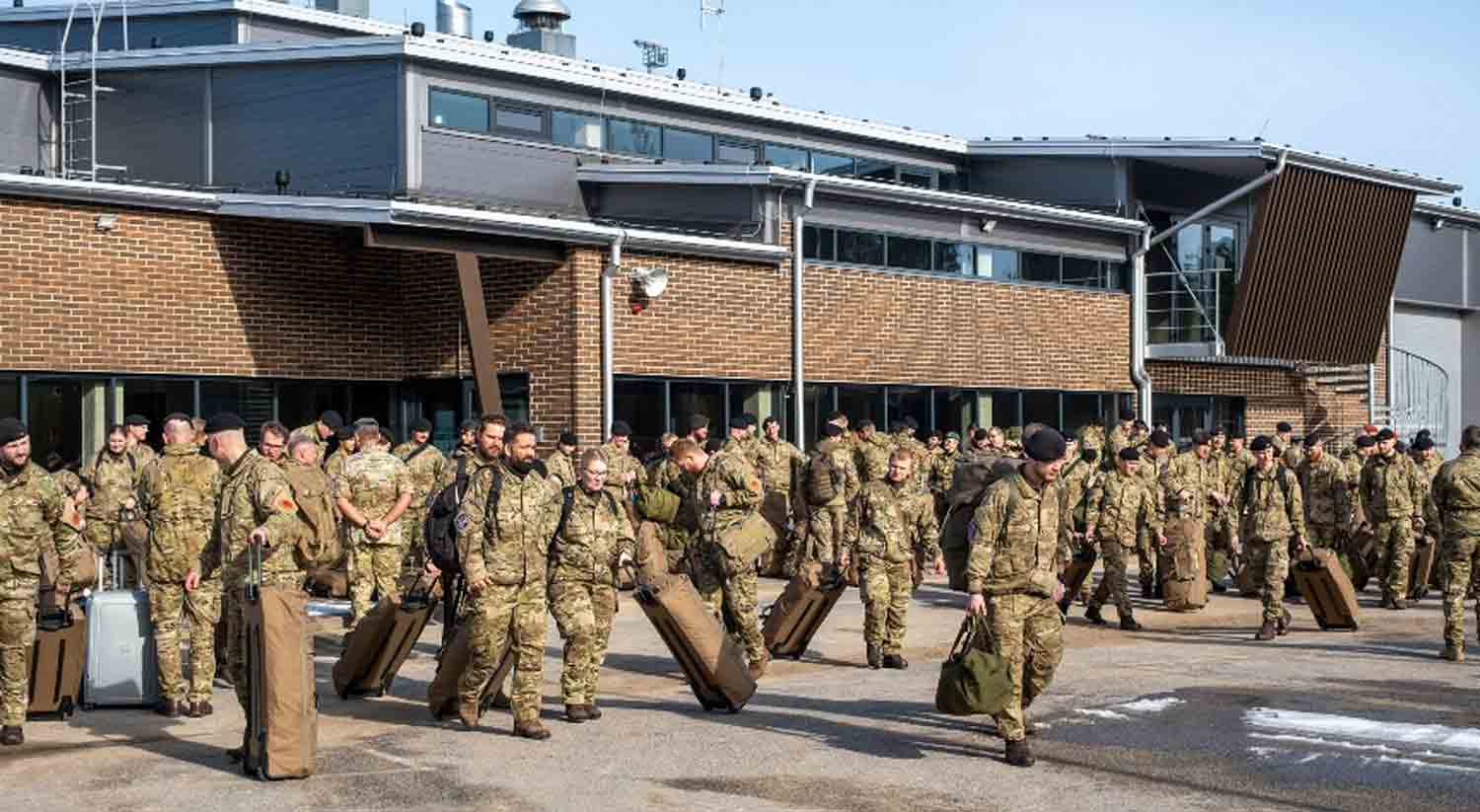U.S., French, and German diplomats have expressed concerns to Syria‘s new Islamist leadership regarding the appointment of foreign jihadists to high-ranking military positions, indicating that this could pose security risks and negatively impact their international image as they seek to establish relations with other countries, according to two sources familiar with the discussions.
The U.S. delivered this warning during a meeting on Wednesday between U.S. envoy Daniel Rubinstein and Syria’s de facto leader, Ahmed al-Sharaa, at the presidential palace in Damascus, as reported by a U.S. official.
“This strategy will not enhance their standing in the U.S.,” the official stated.
French Foreign Minister Jean-Noel Barrot and German Foreign Minister Annalena Baerbock also raised concerns about the inclusion of foreign fighters in the military during their discussions with Sharaa on January 3, as noted by an official familiar with the talks.
Reuters had previously reported on December 30 about these appointments, and the envoys’ remarks regarding them have not been disclosed until now.
Sharaa’s armed group, Hayat Tahrir al-Sham, was instrumental in the ousting of former president Bashar al-Assad on December 8 and has since established a new government while dismantling the Assad-era military. They are currently working to rebuild the armed forces. Last year, they made nearly 50 appointments, including at least six foreign fighters, such as individuals from China, Central Asia, Turkey, Egypt, and Jordan, as reported by Reuters at that time.
Three individuals were promoted to the rank of brigadier-general, while at least three others attained the rank of colonel, according to a Syrian military source.
HTS and its allied factions have recruited hundreds of foreign fighters who arrived in Syria during the 13-year civil conflict, many of whom adhere to strict interpretations of Islam.
Foreign governments typically regard these foreign fighters as a significant security risk, fearing that some may attempt to execute attacks in their home nations after acquiring combat experience abroad.
Officials from the new Syrian administration have acknowledged the contributions of foreign fighters in the effort to oust Assad, suggesting that they could be integrated into Syrian society and potentially granted citizenship.
The Syrian defense ministry did not provide a response to a request for comment, nor did the German foreign ministry.
A spokesperson for the State Department indicated that the U.S. is engaged in ongoing discussions with the interim authorities in Damascus. “The talks have been productive and have addressed a variety of domestic and international matters,” the spokesperson noted, emphasizing that there has been “significant progress on counter-terrorism initiatives, including those related to ISIS.”
MIDDLE PATH
During the conflict, various foreign fighters in Syria established their own armed factions, while others aligned themselves with established groups like the ultra-extremist Islamic State, which wreaked havoc across Iraq and Syria before being pushed back. Some foreign jihadists joined Hay’at Tahrir al-Sham (HTS), which renounced its previous affiliations with al-Qaeda and the Islamic State, engaging in fierce confrontations against them before leading the rapid campaign that ultimately ousted Assad.
The United States, European nations, and Arab Gulf States are currently interacting with the new administration in an effort to encourage an inclusive political transition and to foster collaboration on counter-terrorism initiatives and curbing Iranian influence in the region. However, there are concerns regarding how the former rebels, now in power, will govern the country and how they will unify diverse factions with differing perspectives on the future of Syria.
According to a U.S. official and a Western source, the Syrian government justified the inclusion of foreign fighters by stating that they could not simply be repatriated or relocated to places where they might face persecution, suggesting that it was more prudent to retain them within Syria. The U.S. official further noted that authorities argued these individuals had contributed to the effort to remove Assad and that many had been in Syria for over a decade, thus becoming integrated into society.
Diplomats indicated that the U.S., along with European and Arab nations, particularly Egypt and Jordan, opposed these appointments due to concerns that such actions might send positive signals to transnational jihadist groups. Among those appointed to the rank of brigadier-general are Jordanian Abdul Rahman Hussein al-Khatib and Chinese Uyghur militant Abdulaziz Dawood Khudaberdi, also known as Zahid, who leads the Turkistan Islamic Party’s forces in Syria, an organization aiming to establish an independent state in parts of China, which is classified as a terrorist group by Beijing.
Alaa Mohamed Abdelbaqy, an Egyptian militant who fled Egypt in 2013, has also been appointed. He was sentenced to life imprisonment in absentia in 2016 on terrorism charges. Abdelbaqy led the al Nusra Front in Egypt, which is linked to al Qaeda, and served as a key connection between this group and other al Qaeda affiliates, as reported by Egyptian security sources.
Diplomats and analysts focused on Syria indicate that the new leadership faces the challenge of balancing the interests and demands of various factions, including foreign entities, alongside the expectations of Western and Arab powers whose support is crucial for the country’s reconstruction.
Aaron Zelin, a Senior Fellow at the Washington Institute for Near East Policy, noted that the rationale behind appointing foreign fighters to the military from Damascus is based on their perceived trustworthiness and loyalty. Additionally, the new Syrian leadership aims to mitigate potential disruptions both domestically and internationally.
Zelin remarked, “This could represent a compromise that satisfies all parties, ideally preventing any issues from arising outside the country while integrating these fighters into Syrian society.” However, he also acknowledged that there will likely remain local risks and global concerns.
Discover more from Defence Talks | Defense News Hub, Military Updates, Security Insights
Subscribe to get the latest posts sent to your email.





